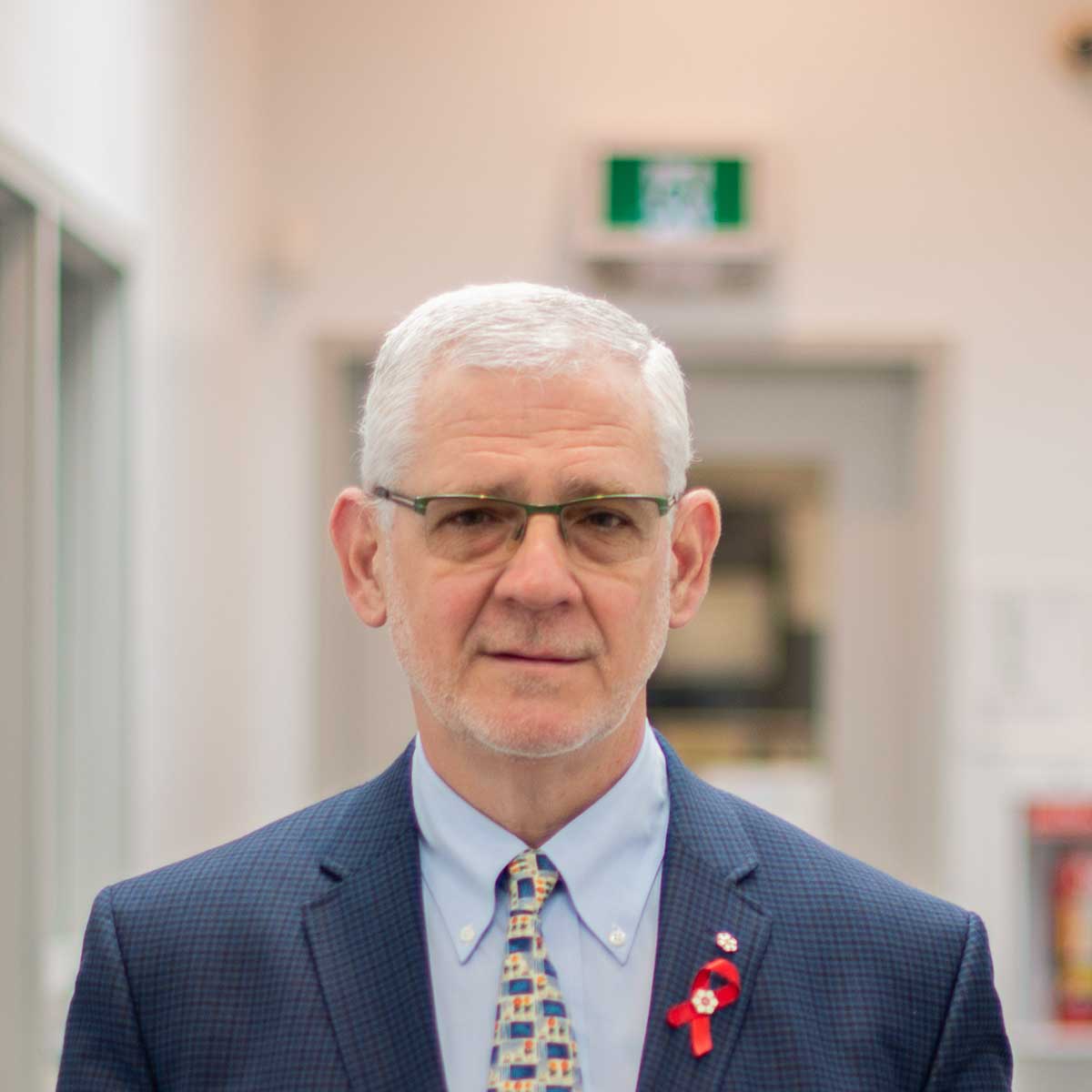01.
About Us
The BC Centre for Excellence in HIV/AIDS (BC-CfE) is Canada’s largest HIV/AIDS research, treatment and education facility—nationally and internationally recognized as an innovative world leader in combating HIV/AIDS and related diseases. The made-in-BC Treatment as Prevention® strategy (TasP® ) pioneered by Dr. Julio Montaner, inspired the ambitious global UNAIDS 90-90-90 Target to end AIDS as a global pandemic by 2030.
The BC-CfE is applying the proven-effective and costs-saving TasP® strategy to therapeutic areas beyond HIV/AIDS through a Targeted Disease Elimination® (TDE® ) model. The aim of the innovative TDE® approach is to monitor and evaluate health interventions in order to direct them to where they are most needed. This approach could help curb contagious diseases and diseases with a social contagion factor, while contributing to health care sustainability by reducing new cases of illness.
We have an opportunity before us to apply to other contagions the strategies and models that have proven successful in curbing the HIV epidemic while increasing health care sustainability. What we have done with HIV/AIDS we can do with other diseases. We have the tools and the knowledge to change the course of the major health burdens of our time.
- Dr. Julio Montaner, Executive Director and Physician-in-Chief, BC-CfE
02.
Our Impact
The BC-CfE is dedicated to improving the health of British Columbians through the development, ongoing monitoring and dissemination of comprehensive research and treatment programs for HIV, hepatitis C, substance use, mental health and other contagious and socially communicable illnesses. This includes a range of health conditions that could be transmitted through social behaviour.
The BC-CfE places diseases like HIV and viral hepatitis under the microscope, educates doctors and health care professionals worldwide, and promotes evidence-based social policy to curb high-burden epidemics.
In short, our influence stretches from the molecule to the community and is led by a highly accredited team that includes award-winning researchers. Our objectives are to be achieved in cooperation with government health care professionals, health care organizations, universities and the community of people living with HIV/AIDS and other related diseases.
As a key provincial resource, the BC-CfE serves all BC health authorities. The BC-CfE is the only source of government-funded antiretroviral therapy for treatment of individuals living with HIV in BC, conducted through the Drug Treatment Program. We receive funding through the Government of BC and from leading institutions, such as the Canadian Institutes of Health Research (CIHR) and the US National Institutes of Health (NIH).
03.
History of the BC-CfE
When the BC Centre for Excellence in HIV/AIDS (BC-CfE) opened in 1992, a British Columbian was dying from AIDS almost every day. The BC-CfE was established in 1992 to provide interdisciplinary research to help prevent and treat HIV and related diseases, and to inform the development of cost-effective policies and programs. The BC-CfE’s other founding areas of focus included:
- developing new methods of patient care through vigorous clinical trials,
- providing education and other support programs to health care professionals,
- participating in ongoing surveillance and epidemiology programs and
- improving the health of British Columbians.
Over the course of its history, the BC-CfE has become Canada’s largest HIV/AIDS research organization and a world-leader in the fight against HIV. The work of the BC-CfE has made dramatic and remarkable provincial, national and international impacts.
Dr. Julio Montaner, Executive Director and Physician-in-Chief, was instrumental in the development of combination antiretroviral therapy (ART), the gold standard in HIV treatment. He subsequently pioneered the Treatment as Prevention® (TasP® ) strategy, implemented in BC to expand earlier access to HIV testing and provide universal supported and sustained access to HIV treatment immediately upon a diagnosis.
Since 2006, the implementation of TasP® in BC has resulted in dramatic and significant declines in cases of HIV and AIDS, including:
- a 76% decrease in AIDS-related fatalities (1994-2017),
- a 74% drop in new HIV cases (since 1996),
- a 90% drop in cases of HIV which progressed to AIDS cases (1994-2017)
- a 92% drop in cases of AIDS-defining illnesses (1994-2017)
04.
The made-in-BC Treatment as Prevention® strategy goes global
Dr. Julio Montaner, Executive Director and Physician-in-Chief of the BC-CfE, introduced Treatment as Prevention® (TasP® ) to the world in a ground-breaking 2006 Lancet paper presented at the IAS Conference in Toronto. At the time, the idea of providing universal access to HIV prevention treatment immediately upon diagnosis was met with controversy. Many thought treatment should be delayed to avoid side effects.
HIV treatment continues to advance, and the global scientific and medical community has coalesced around the concept of TasP® . The made-in-BC TasP® strategy has provided the foundation for the UNAIDS 90-90-90 Target to end AIDS globally by 2030, and adopted by the United Nations. A number of worldwide jurisdictions have officially adopted TasP® as a means to curb their HIV epidemics, including France, Spain, Brazil, Panama, China and the US cities of Washington, DC, and San Francisco.
Research into TasP® received a jumpstart after the introduction of highly active antiretroviral treatment (HAART), now the gold standard in HIV treatment. Ecological data from Taiwan and British Columbia suggested new HIV diagnoses had decreased in an unexpected fashion. In British Columbia, the effect of HAART on HIV new cases was apparent, despite a steady rise in syphilis rates—suggesting that it was HIV treatment, rather than other prevention methods, that was driving the decline. It also became clear HAART had the potential to eliminate vertical transmission of HIV, which has since been scientifically proven.
Since those early findings, BC-CfE research has effectively shown that TasP® can improve quality of life and longevity for people living with HIV while curbing HIV transmission. These findings have been echoed in peer-reviewed, scientific studies worldwide. To add, BC-CfE research has demonstrated that TasP® is cost-saving by averting costs related to new incidence of disease or illness. Further, it has now been scientifically established that there is zero chance of HIV transmission when treatment is sustained and viral levels are undetectable due to treatment.
A key component of the TasP® concept is that a person who is on sustained and consistent effective HIV treatment can achieve a level of virus that is undetectable in standard blood tests, at which point they cannot spread the virus to others. The TasP® concept forms the foundation of the Undetectable Equals Untransmittable movement, endorsed by Dr. Montaner and other world-leading researchers, to broaden awareness that an individual who has achieved an undetectable status cannot spread the virus to others.
The made-in-BC TasP® strategy, pioneered in 2006 by the BC-CfE—providing earlier and free access to HIV testing and immediate, supported and sustained access to HIV treatment—is key to curbing HIV and ending AIDS. TasP® and forms the basis of the UNAIDS 90-90-90 Target to end AIDS as a pandemic by 2030 by hitting ambitious—but reachable—targets for expanding access to HIV testing and sustained HIV treatment.
05.
Impact beyond HIV – Targeted Disease Elimination®
The Treatment as Prevention® (TasP® ) model has expanded to other illnesses, including other infectious diseases such as viral hepatitis and sexually transmitted infections. The innovative concept of Targeted Disease Elimination® (TDE® ) can equally contribute to changing the trajectory of socially contagious diseases, such as diabetes, heart disease and COPD.
TDE® is seeing forward momentum. The BC Ministry of Health has now formally embraced TDE® as part of the provincial efforts to control the spread of hepatitis C. At the national level, in 2018, Diabetes Canada formally partnered with the BC-CfE to adopt the BC-CfE TasP® ® model for type 2 diabetes.
Under the umbrella of TDE® , the BC-CfE continues to promote health care sustainability. Key to TDE® is directing the most effective interventions for prevention, treatment and care to where they are most needed. This entails removing barriers to care and meeting individuals affected where they are. The TDE® concept is based on the BC-CfE’s successful outreach with prevention, treatment and care for HIV, including to marginalized populations such as injection drug users. In BC, a decrease in HIV transmission among IDUs was the driver of provincewide declines in new HIV cases.
The TDE® strategy supports health care sustainability by averting new cases of illness and promoting improved quality of life. By expanding our understanding of the impact of programs and policies for the prevention, monitoring and treatment of contagious and socially communicable diseases, we can help curb the spread of high burden epidemics of our time.
Senior Directors
The BC-CfE comprises a dedicated and professional team of physicians, health care providers, researchers, operational and administrative staff. Following our list of Directors, you will find an alphabetical listing of many of our longer-term staff and collaborative partners.

Dr. Julio Montaner
Executive Director and Physician-in-Chief, BC Centre for Excellence in HIV/AIDS; Head, HIV/AIDS Program, St. Paul’s Hospital, Providence Health Care; UBC and St. Paul's Foundation Chair in AIDS Research and UBC-Killam Professor, Faculty of Medicine, University of British Columbia;

Mark Helberg
Senior Director, Strategic Operations
Committees
Joint Funding Management Committee
The purpose of this committee is to review the Drug Treatment Program budget, determine its adequacy, monitor financial operations, advise Pharmacare of potential pressures and to make recommendations. The Committee has representatives from BC-CfE, Providence Health Care, the Ministry of Health, and Pharmacare (Ministry of Health).
Therapeutic Guidelines Committee
The Therapeutic Guidelines Committee plays a key role in the BC-CfE's ongoing commitment to providing the most current information and research regarding the treatment of HIV/AIDS. The committee generates the BC HIV/AIDS Therapeutic Guidelines, which allow physicians throughout the province to become more actively involved in all aspects of prescribing and monitoring antiretroviral drug regimens for their patients. The guidelines are formed by consensus among Therapeutic Guidelines Committee members, based on interpretation of current best practices in the treatment of HIV/AIDS and related conditions. The guidelines are reviewed quarterly and revisions are distributed to physicians throughout the province.
